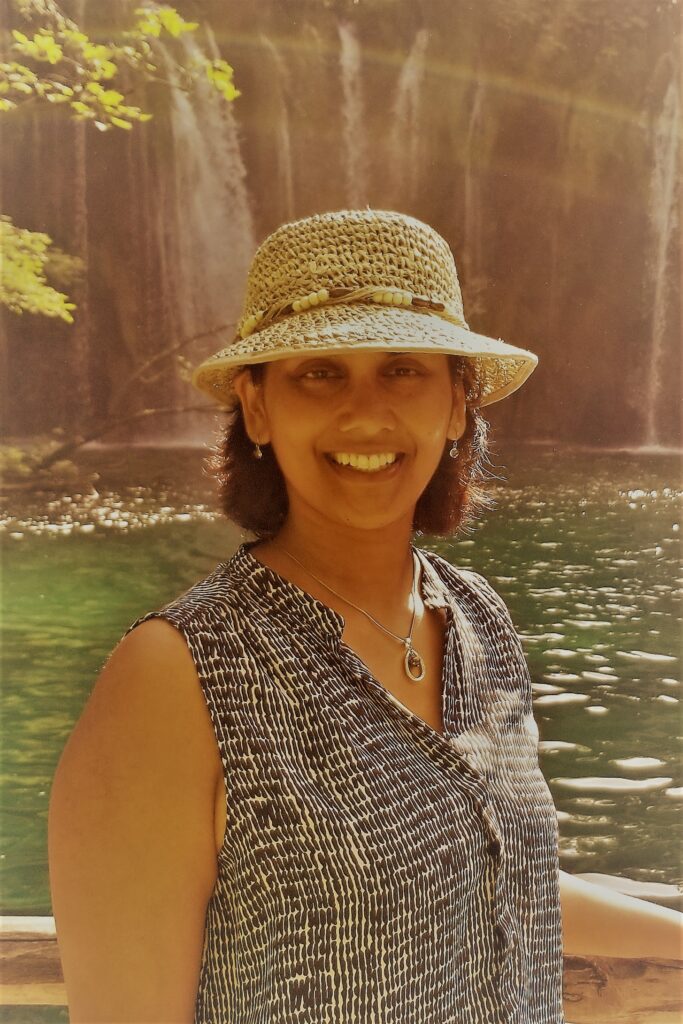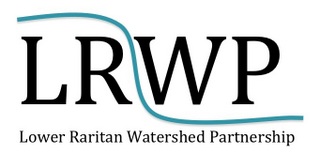An Interview with LRWP Board Member Nandini Checko
Interview by Emily Koai, LRWP Spring 2020 Raritan Scholar

Nandini Checko was born in India and moved to the United States at a young age. She earned her bachelors and masters degrees at Rutgers and Columbia Universities respectively. When her children started school, she began her journey in local volunteering in schools and townships within Somerset County. She has helped with a multitude of initiatives in an effort to improve local sustainability. Through her work with LRWP and ANJEC, she hopes for improved civic engagement in communities and a more profound understanding of our interconnectedness with nature.
EK: Could you tell us a little about yourself and your background?
NC: Unlike many of my colleagues, I don’t have an environmental science background. I have a bachelor’s degree from Rutgers School of Business, and a master’s degree from Columbia in Organizational Development. My degree in organizational development has helped frame the work that I do because it takes a holistic approach to managing change — the people, systems, process and technology. It’s a highly collaborative approach to help move a project along and to help folks really co-create their future.
EK: What led you to your focus in plastics then?
NC: It started with my organization that I work for right now, which is the Association of New Jersey Environmental Commissions (ANJEC)— a statewide, non-profit environmental group that helps New Jersey environmental commissions, individuals, local and state agencies preserve natural resources and promote sustainable communities. We just celebrated 50 years of environmental excellence. We are a small but mighty group! My boss came to me maybe about 4 years ago and said EPA Region 2 is doing a roll out of a program called Trash Free Waters – zero waste loading of trash into our waterways, and at that time, Region 2 (NJ, NY, PR, US Virgin Islands, & eight Indian Nations) was led by Judith Enck. She’s an absolute visionary, a total leader, similar to Heather—very inspiring and amazing woman.
ANJEC started dipping their toes in and asked “What would that really look like in New Jersey?” When we dug into that question, we found our way to the problem of people pollution. The nine million of us that live in New Jersey—we’re all polluting in our own little way. So much waste entering our natural eco-systems. And when you dig down into that waste (especially litter), then you’re looking at plastics, and when you go a little further into plastics, you realize the majority of it is single-use, once and done.
That really motivated us to take this and move this agenda item forward. It aligns very well with our mission of supporting the local environment and I had a lot of support to advance reducing single-use plastics from my boss, Jennifer Coffey (ANJEC Executive Director) – an inspirational leader that gives the staff a lot of leeway.
EK: Did you have any passion projects in your career that led you to where you are today?
NC: I lived in India during my formative years and was always really connected to the environment. I’m very sensitive about waste– whether it’s litter or food waste, just waste in general, it bothers me deeply because it’s such a pull on the Earth’s resources.
We recycle at home, and when my son started elementary school, I figured the school was doing the same. And then he came home a few weeks in and said that they don’t recycle in school. I looked into it and, sure enough, they weren’t recycling. That started me on the path of local volunteering. I started the Green Design Group and we created sustainable efforts within the community and put forth a lot of the initiatives in schools and the township. And through that effort, I also started the Green Classroom Committee. As a parent volunteer, I worked with the superintendent, the facilities manager, business administrator, students and teachers to help educate and implement a variety of programs from anti-idling, removing Styrofoam lunch trays, and energy efficiency programs.
When you think about what gets people activated, it’s about what they can see, touch and feel in their own lives. When you see the woods in your town on fire, you’re going to get involved and ask: Why is that on fire? How can I help? For me, it was my kids. I was recycling at home and they come back from school and say they’re not recycling there. That’s when I got curious. Children are key to helping adults get involved in civic engagement.
EK: On a wider scale, what roles do you think municipalities have in progressing the work we are doing as an organization?
NC: I think they play a massive role. Municipalities are key players in advancing LRWP’s mission of improving water quality and the health of the ecosystem of the Raritan River. Given NJ’s home rule structure, local governance is essential to making water stewardship and advocacy a priority.
EK: What kind of opportunities do you think there are for partnership between the LRWP and the ANJEC?
NC: “Water is life, and we have a moral obligation to protect it for all its inhabitants now and in the future.” This quote from Candy Ashmun, ANJEC Co-founder, highlights the synergy between our two groups. Environmental commissions play a pretty unique role in municipalities. Most local planning happens within the boundaries of the town and in site development, it’s just by block and lot numbers. You’re not looking to see how it’s all connected. Water, land, animals have no boundaries. And environmental commissioners, when they take that bigger regional look, they’re looking at the watershed. Through my role at ANJEC, I would like to introduce more municipal officials to LRWP and help advance our mutual goals.
EK: What would you like to communicate to today’s society about watersheds and the environment?
Watersheds play a really key role in all our lives. We have to support reducing the amount of pollution that enters the watersheds and people need to better understand where their water comes from and where it goes.
